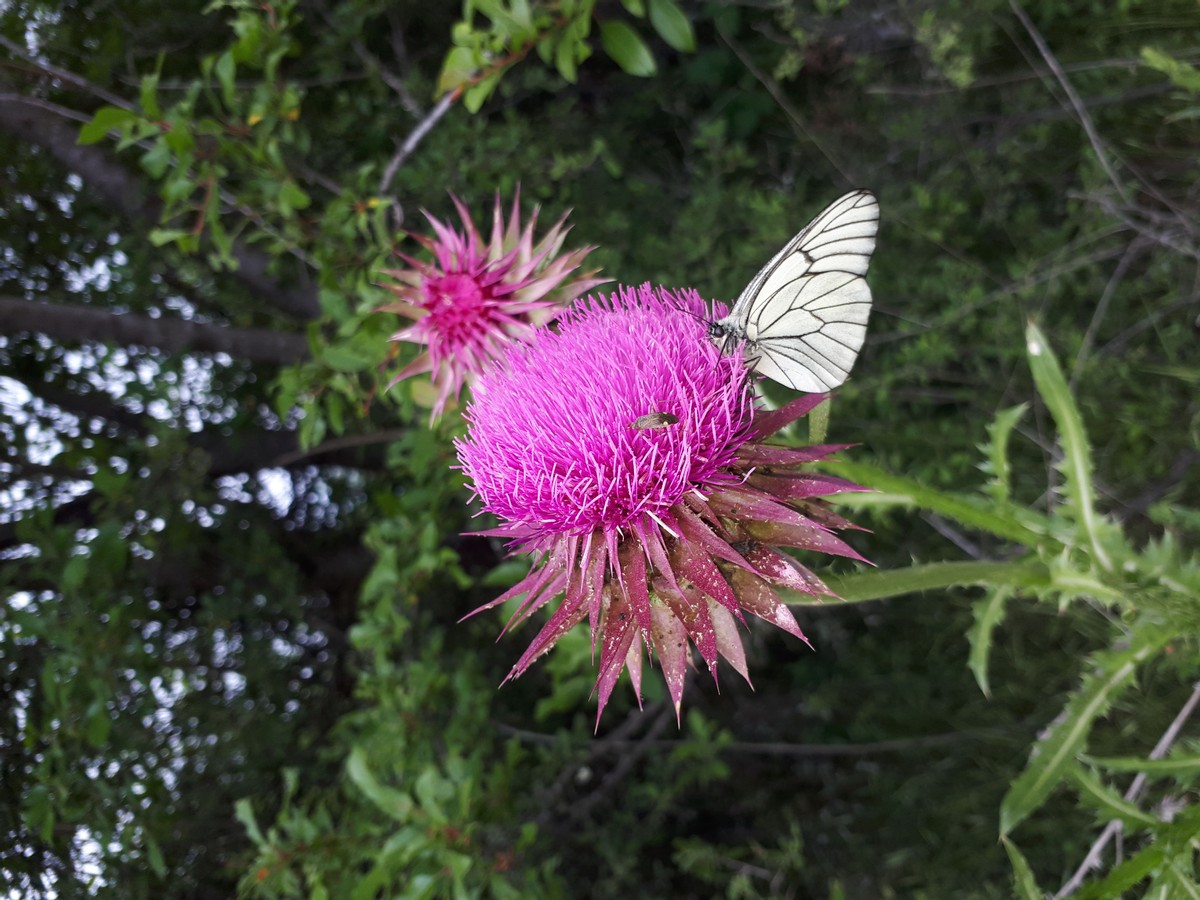
I find it fascinating that the word for “butterfly” can be so different between languages.
A quick word about me/moi/mim/мен. My mother tongue is English, and I learned French at school and then at university. Two years ago, I started learning European Portuguese and Bulgarian, as my partner and I started spending some months in Portugal and Bulgaria.
The word for “butterfly” in French is “papillon” (pronounced pah-pee-YOHN), like the breed of dog which has ears similar to that of butterfly wings. It’s a masculin word en français.
The word for “butterfly” in European Portugese is “borboleta” (pronounced bor-boh-LEH-ta). It is a feminine word, like most nouns that end in -a em português.
The word for “butterfly” in Bulgarian is “пеперуда” (pronounced “peh-peh-ROO-dah”). As with the Portuguese term, it is a feminine word, like most nouns that end in “-а” на български.
How did the word for “butterfly” come to spell and sound so different in these four languages?
From what I understand, here are the origins of the words in each language:
- butterfly - the English-language name for the winged insect may come from the colour of their excrement, as well as what they like to eat. :-o According to a professor at Carleton University, Old Dutch referred to butterflies as “boterschijte”, which “literally means ‘butter $#!t.’ [...] The tendency for butterflies to feed on poop might explain the Old Dutch term.” And an Old German name included “botterlicker,” which literally means “butter-licker.” (footnote 1)
- papillon - The name for this insect in French likely comes from the insect’s “superfamily” Papilionoidea and genus Papilio.
- borboleta - According to a Wiki site, borboleta comes from Old Portuguese “berbeleta”, which came either from Vulgar Latin belbellita (the diminutive form of bellus = “beautiful”) or papilitta (from Latin pāpiliō = “butterfly”). (footnote 2)
- пеперуда - I have not yet dredged up the etymology of the word for “butterfly” in the Bulgarian language. Hoping a Journaly reader might be able to pitch in with his/her knowledge.
In any case, I love hearing and saying the words in the four different languages.
What is “butterfly” in your native language or a language that you are learning?
****
Footnote 1: https://carleton.ca/biology/cu-faq/why-are-butterflies-called-butterflies/
Footnote 2: https://en.wiktionary.org/wiki/borboleta
The photo of the butterfly on a thistle flower was taken by me in Bulgaria in May 2020.

If anyone has any tips about how to change the font of bullet lists to the same font as the main text, please let me know!
I think that the editor doesn't allow what your are looking for.
Regarding the word butterfly, I've two to add: 1. Schmetterling in German and 2. mariposa in Spanish. The German word has some Slavic origin similar to the English one.
In Ancient Greek the word for 'butterfly' is 'psyche' which also means 'soul', 'spirit'. In Latin it is 'papilio' whence 'papillon'.
Thanks Linda. "Mariposa" looks like a familiar word, but I have not yet learned Spanish. Likely next on my list!
Interesting, I didn't know about the Old Dutch word "boterschijte" haha. Thankfully we don't call them that anymore, we say "vlinder" now. The etymology is uncertain, apparently, but it may be related to older words for "flutter".
Cool! In Sweden it's called "Fjäril" (The ä is pronunced like the A in "Albus" or "And")
Thanks for your comments, @Harald, J. (@Pfannkuchenschiff), and @Chocolate_Frog!
Mariposa